Dry roasted peanuts are a popular snack enjoyed by many, but for individuals with diabetes, there may be concerns about how they fit into their diet. In this comprehensive article, we will explore the relationship between dry roasted peanuts and diabetes, including their nutritional content, potential benefits, and considerations for those managing diabetes. Firstly, let’s delve into the nutritional profile of dry roasted peanuts. These crunchy legumes are packed with essential nutrients that can contribute to a balanced diet.
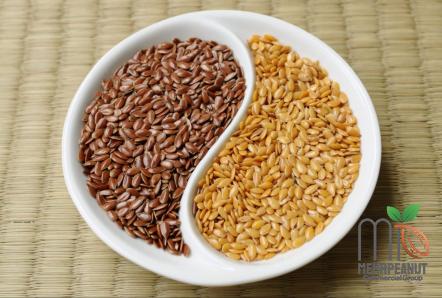
.
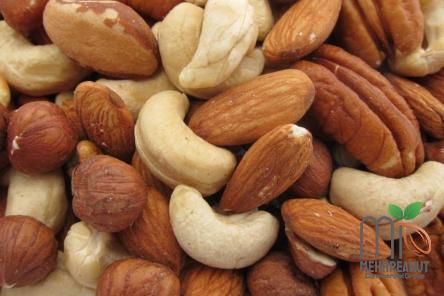 One of the key components of peanuts is their high protein content. Protein is essential for maintaining muscle mass, aiding in cell repair, and keeping you feeling fuller for longer. For individuals with diabetes, incorporating protein-rich foods like dry roasted peanuts can help regulate blood sugar levels and prevent spikes. In addition to protein, dry roasted peanuts are also a great source of healthy fats. These monounsaturated and polyunsaturated fats are known to have positive effects on heart health by reducing LDL cholesterol levels and inflammation. For individuals with diabetes, maintaining heart health is crucial, as they are at a higher risk of developing cardiovascular complications. Including dry roasted peanuts in moderation can be a heart-healthy choice for individuals managing diabetes. Moreover, dry roasted peanuts are a good source of dietary fiber. Fiber plays a crucial role in slowing down the digestion and absorption of carbohydrates, which can help prevent sudden spikes in blood sugar levels. By including fiber-rich foods like dry roasted peanuts in your diet, you can promote better blood sugar control and improve overall glycemic management. Furthermore, dry roasted peanuts are rich in essential vitamins and minerals, such as vitamin E, magnesium, and potassium. Vitamin E is a powerful antioxidant that helps protect cells from damage, while magnesium and potassium play important roles in nerve function, muscle contraction, and blood pressure regulation. Individuals with diabetes may have higher requirements for these nutrients, making dry roasted peanuts a convenient and nutritious option to meet those needs. When it comes to managing diabetes, portion control is key.
One of the key components of peanuts is their high protein content. Protein is essential for maintaining muscle mass, aiding in cell repair, and keeping you feeling fuller for longer. For individuals with diabetes, incorporating protein-rich foods like dry roasted peanuts can help regulate blood sugar levels and prevent spikes. In addition to protein, dry roasted peanuts are also a great source of healthy fats. These monounsaturated and polyunsaturated fats are known to have positive effects on heart health by reducing LDL cholesterol levels and inflammation. For individuals with diabetes, maintaining heart health is crucial, as they are at a higher risk of developing cardiovascular complications. Including dry roasted peanuts in moderation can be a heart-healthy choice for individuals managing diabetes. Moreover, dry roasted peanuts are a good source of dietary fiber. Fiber plays a crucial role in slowing down the digestion and absorption of carbohydrates, which can help prevent sudden spikes in blood sugar levels. By including fiber-rich foods like dry roasted peanuts in your diet, you can promote better blood sugar control and improve overall glycemic management. Furthermore, dry roasted peanuts are rich in essential vitamins and minerals, such as vitamin E, magnesium, and potassium. Vitamin E is a powerful antioxidant that helps protect cells from damage, while magnesium and potassium play important roles in nerve function, muscle contraction, and blood pressure regulation. Individuals with diabetes may have higher requirements for these nutrients, making dry roasted peanuts a convenient and nutritious option to meet those needs. When it comes to managing diabetes, portion control is key.
..
 While dry roasted peanuts offer a wide range of nutritional benefits, they are also calorie-dense. Overeating any food, including peanuts, can lead to weight gain, which is a risk factor for insulin resistance and poorly managed diabetes. It is essential for individuals with diabetes to be mindful of their portion sizes and incorporate dry roasted peanuts in moderation as part of a balanced diet. Incorporating dry roasted peanuts into your meals and snacks can be a delicious and satisfying way to enjoy their health benefits. Here are some creative ways to include dry roasted peanuts in your diabetes-friendly diet: 1. Sprinkle chopped dry roasted peanuts over a salad for added crunch and flavor. 2. Blend dry roasted peanuts into a homemade nut butter to spread on whole-grain toast or fruit slices. 3. Mix dry roasted peanuts with other nuts and seeds for a nutritious trail mix. 4. Use crushed dry roasted peanuts as a coating for baked chicken or fish for a crunchy crust. 5. Add dry roasted peanuts to stir-fries or noodle dishes for extra protein and texture. In conclusion, dry roasted peanuts can be a valuable addition to a diabetes-friendly diet due to their nutrient density and health benefits. By incorporating them in moderation and being mindful of portion sizes, individuals with diabetes can enjoy the delicious crunch of dry roasted peanuts while supporting their overall health and well-being. Next time you reach for a snack, consider reaching for a handful of nutritious and satisfying dry roasted peanuts to satisfy your cravings and support your diabetes management goals. By choosing dry roasted peanuts as a snack option, individuals with diabetes can enjoy a variety of benefits that support their overall health and well-being. From their nutrient-rich profile to their potential impact on blood sugar control, dry roasted peanuts offer a convenient and delicious way to meet dietary recommendations while managing diabetes effectively. One of the key advantages of incorporating dry roasted peanuts into a diabetes-friendly diet is their low glycemic index (GI) value. The GI measures how quickly a food raises blood sugar levels after consumption. Foods with a low GI value, like dry roasted peanuts, are digested and absorbed more slowly, leading to a gradual rise in blood glucose levels. This can help individuals with diabetes maintain stable blood sugar levels and prevent sudden spikes that may require additional insulin or medication.
While dry roasted peanuts offer a wide range of nutritional benefits, they are also calorie-dense. Overeating any food, including peanuts, can lead to weight gain, which is a risk factor for insulin resistance and poorly managed diabetes. It is essential for individuals with diabetes to be mindful of their portion sizes and incorporate dry roasted peanuts in moderation as part of a balanced diet. Incorporating dry roasted peanuts into your meals and snacks can be a delicious and satisfying way to enjoy their health benefits. Here are some creative ways to include dry roasted peanuts in your diabetes-friendly diet: 1. Sprinkle chopped dry roasted peanuts over a salad for added crunch and flavor. 2. Blend dry roasted peanuts into a homemade nut butter to spread on whole-grain toast or fruit slices. 3. Mix dry roasted peanuts with other nuts and seeds for a nutritious trail mix. 4. Use crushed dry roasted peanuts as a coating for baked chicken or fish for a crunchy crust. 5. Add dry roasted peanuts to stir-fries or noodle dishes for extra protein and texture. In conclusion, dry roasted peanuts can be a valuable addition to a diabetes-friendly diet due to their nutrient density and health benefits. By incorporating them in moderation and being mindful of portion sizes, individuals with diabetes can enjoy the delicious crunch of dry roasted peanuts while supporting their overall health and well-being. Next time you reach for a snack, consider reaching for a handful of nutritious and satisfying dry roasted peanuts to satisfy your cravings and support your diabetes management goals. By choosing dry roasted peanuts as a snack option, individuals with diabetes can enjoy a variety of benefits that support their overall health and well-being. From their nutrient-rich profile to their potential impact on blood sugar control, dry roasted peanuts offer a convenient and delicious way to meet dietary recommendations while managing diabetes effectively. One of the key advantages of incorporating dry roasted peanuts into a diabetes-friendly diet is their low glycemic index (GI) value. The GI measures how quickly a food raises blood sugar levels after consumption. Foods with a low GI value, like dry roasted peanuts, are digested and absorbed more slowly, leading to a gradual rise in blood glucose levels. This can help individuals with diabetes maintain stable blood sugar levels and prevent sudden spikes that may require additional insulin or medication.
…
 Moreover, the combination of protein, healthy fats, and fiber in dry roasted peanuts can further contribute to better glycemic control. Protein and fat have minimal impact on blood sugar levels, while fiber slows down the absorption of carbohydrates. This balance of nutrients in dry roasted peanuts can help individuals with diabetes manage their blood sugar more effectively and reduce the risk of complications associated with poorly controlled diabetes. In addition to their potential benefits for blood sugar management, dry roasted peanuts can also promote satiety and help control cravings. The combination of protein and healthy fats in peanuts can keep you feeling full and satisfied for longer periods, reducing the likelihood of overeating or making unhealthy food choices. By incorporating dry roasted peanuts into your meals and snacks, you can enjoy a nutrient-dense option that supports weight management and overall health. Furthermore, the versatility of dry roasted peanuts makes them a convenient and portable option for individuals with diabetes. Whether you’re looking for a quick snack on the go or a tasty addition to your meals, dry roasted peanuts can easily fit into your daily routine. Their shelf-stable nature also makes them a convenient pantry staple that you can rely on when hunger strikes or when you need a nutritious boost. When selecting dry roasted peanuts for your diabetes-friendly diet, it’s essential to choose options that are minimally processed and free from added sugars or unhealthy oils. Look for varieties that are dry roasted without any additional ingredients, such as salt, sugar, or preservatives. Opting for plain dry roasted peanuts ensures that you are getting the most nutritional benefits without any hidden additives that may impact your blood sugar levels. In conclusion, dry roasted peanuts can be a valuable addition to a diabetes-friendly diet, offering a range of nutritional benefits that support overall health and well-being. From their protein and fiber content to their heart-healthy fats, dry roasted peanuts provide a satisfying and delicious option for individuals managing diabetes. By incorporating them in moderation and being mindful of portion sizes, you can enjoy the crunchy goodness of dry roasted peanuts while promoting better blood sugar control and supporting your diabetes management goals. Next time you’re in need of a nutritious snack, reach for a handful of dry roasted peanuts to fuel your body and satisfy your cravings in a diabetes-friendly way.
Moreover, the combination of protein, healthy fats, and fiber in dry roasted peanuts can further contribute to better glycemic control. Protein and fat have minimal impact on blood sugar levels, while fiber slows down the absorption of carbohydrates. This balance of nutrients in dry roasted peanuts can help individuals with diabetes manage their blood sugar more effectively and reduce the risk of complications associated with poorly controlled diabetes. In addition to their potential benefits for blood sugar management, dry roasted peanuts can also promote satiety and help control cravings. The combination of protein and healthy fats in peanuts can keep you feeling full and satisfied for longer periods, reducing the likelihood of overeating or making unhealthy food choices. By incorporating dry roasted peanuts into your meals and snacks, you can enjoy a nutrient-dense option that supports weight management and overall health. Furthermore, the versatility of dry roasted peanuts makes them a convenient and portable option for individuals with diabetes. Whether you’re looking for a quick snack on the go or a tasty addition to your meals, dry roasted peanuts can easily fit into your daily routine. Their shelf-stable nature also makes them a convenient pantry staple that you can rely on when hunger strikes or when you need a nutritious boost. When selecting dry roasted peanuts for your diabetes-friendly diet, it’s essential to choose options that are minimally processed and free from added sugars or unhealthy oils. Look for varieties that are dry roasted without any additional ingredients, such as salt, sugar, or preservatives. Opting for plain dry roasted peanuts ensures that you are getting the most nutritional benefits without any hidden additives that may impact your blood sugar levels. In conclusion, dry roasted peanuts can be a valuable addition to a diabetes-friendly diet, offering a range of nutritional benefits that support overall health and well-being. From their protein and fiber content to their heart-healthy fats, dry roasted peanuts provide a satisfying and delicious option for individuals managing diabetes. By incorporating them in moderation and being mindful of portion sizes, you can enjoy the crunchy goodness of dry roasted peanuts while promoting better blood sugar control and supporting your diabetes management goals. Next time you’re in need of a nutritious snack, reach for a handful of dry roasted peanuts to fuel your body and satisfy your cravings in a diabetes-friendly way.

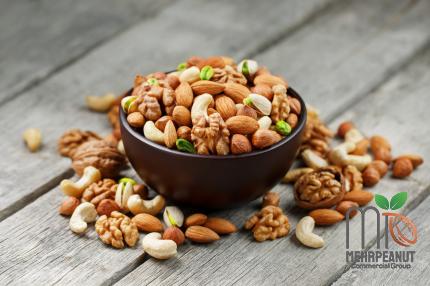

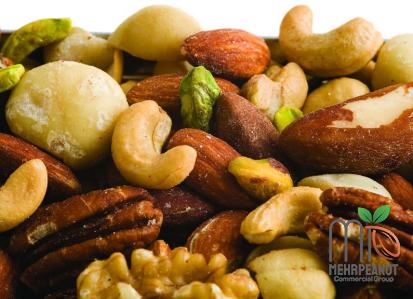
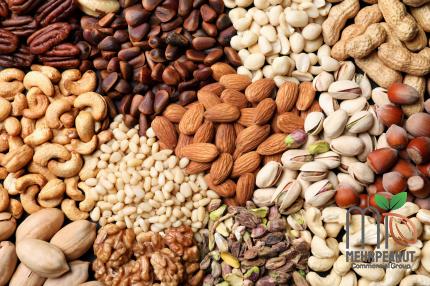
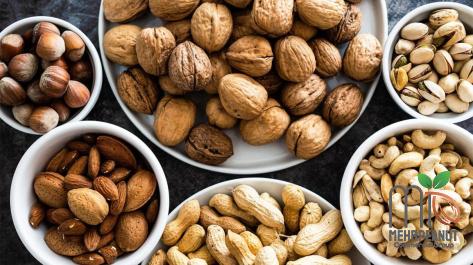
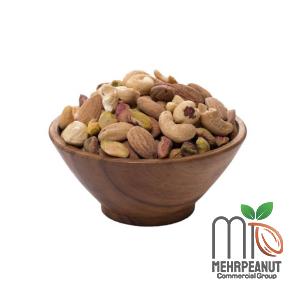
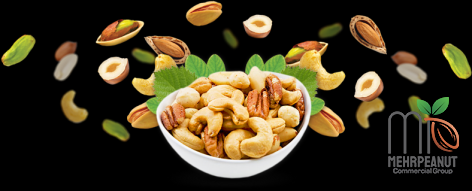
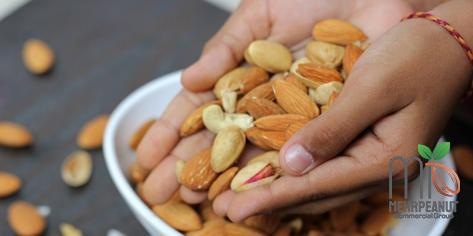
Your comment submitted.